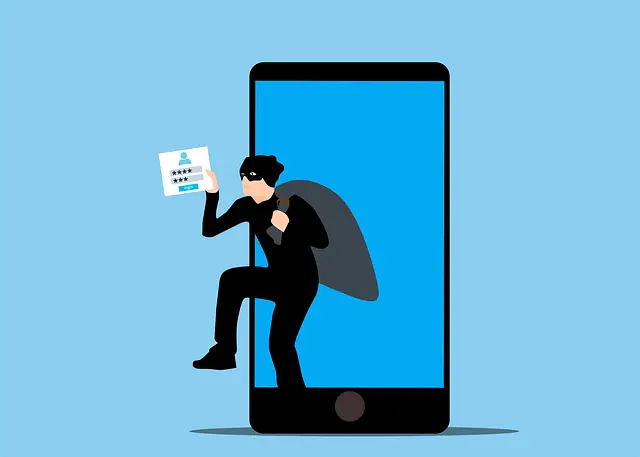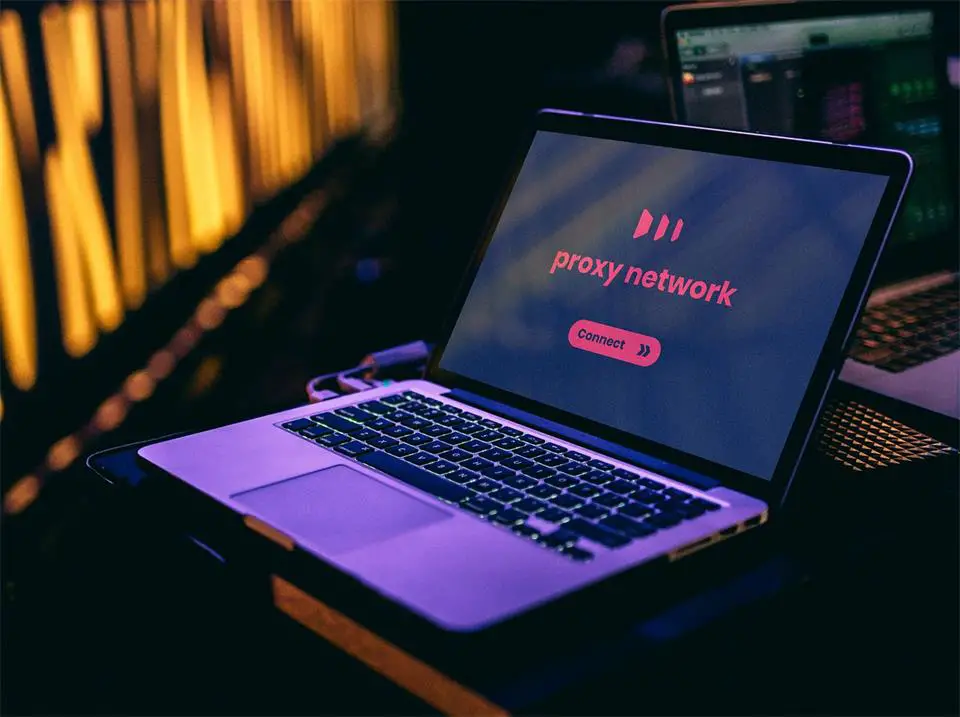Tech
10 Simple Tips You Must Know to Ensure Your Personal Cybersecurity


Here, you’ll learn how to protect yourself from cybercrime and stay safe every time you surf the web. Many people overlook the need for personal cybersecurity, and they pay for it dearly. In this post, we’ll teach you how not to be a victim with our top 10 personal cybersecurity tips.
“Why so hard?!” That’s the hacker’s exclamation upon several attempts to crack your cybersecurity. He ran out of ideas after exploiting every known loophole. What he didn’t know was that you didn’t leave any stone unturned in ensuring your online safety.
But how about waking up to discover that you no longer hold control of your online profiles containing sensitive information about you. Cybercriminals were able to take over your online platforms because you didn’t take your cybersecurity seriously.
Deep down within, you’d agree that such a breach would cost you much more than you can presently fathom. However, cybercriminals don’t care! They are battle-ready to invade vulnerable devices. The bitter truth is that a cyberattack can be very risky.
How do you protect yourself from cybercrime, then?
We have good news! If you give heed to the personal cybersecurity tips we’ll be doling out here, you’re sure to have a solid line of defense to repel hackers anytime they strike. Here, we’ll also show you how to improve personal cybersecurity. But firstly, always keep in mind to choose secure network connections. For example, you may consider surfshark vs nord?
Why is Personal Cyber Security So Important?
Before we delve into the tips that will help keep you safe online, let’s take a closer look at some personal cybersecurity statistics. According to a 2017 research by a Clark School study at the University of Maryland, an Internet hack attack occurs every 39 seconds!
To put this in perspective, more recent research by Purplesec suggests that due to the COVID-19 pandemic, cybercrime has increased by 600%. This means that if you’ve only been using security items like Noble or Kensington slots uk to protect your device physically, it’s time to up your game!
You should now seek to improve personal cyber security because hackers are ready to use malicious apps, websites, and networks to access your data. However, if you consider some tips we’ll give below, boom! You’ll see how easy it is to stay safe online.
Let’s dive all in.
Top 10 Personal Cybersecurity Tips
Below are the top tips that will ensure the safety of your cybersecurity and personal data every time you surf the web. They include:
Tip #1: Carry Out Regular System Updates
Technology improves every day. As such, you shouldn’t hold onto outdated systems. One major technique employed by hackers is to exploit leaks in system programs. That is why software providers and personal cybersecurity companies always release updates and security patches to plug their leaks.
Besides, most old programs no longer have support from their software providers. You can only imagine how vulnerable they are to hackers. Therefore, you should carry out that system updates every time it comes up. Also, keep your apps and web browsers up to date.
Besides, you can just turn on auto-update (if it’s available). That saves you the stress of checking every time. To be honest, those updates can be data and time-consuming. But one thing is sure; the benefits outweigh the inconvenience.
Tip #2: Double-Check Every Link before Clicking
We know this might seem strenuous, but it’s not as hard as you think. All you need to do is calm down before clicking links sent as text messages or emails. If you ponder on how to increase personal cybersecurity, this is one tip you shouldn’t joke with.
That’s why you should be careful: hackers can impersonate popular brands and send fake emails and SMS containing malicious links. Clicking on such links could either infect your system or direct you to a site that looks familiar to the real brand. The hacker may then use any important info you drop to access your private data.
This is what phishing or smishing attacks entail. However, careful observation of such emails or SMS would save you the day.
Tip #3: Professionally Choose Your Passwords and Ensure Proper Password Management
Your password is your first line of defense against hackers. Therefore, you shouldn’t use regular combinations when choosing one. Using your date of birth or mobile phone number as a password makes it a lot easy for cybercriminals to hack your account.
This does not mean you should get unnecessarily complex pass. What then makes a strong password? First off, your password should have at least eight characters, including at least one lowercase and one uppercase letter. It should also contain symbols(except #&%@).
What’s more?
You should never use the same password twice. That’s against personal cybersecurity best practices. You may wonder, “how then will I remember all the passwords for the ton of accounts I have?” That’s where Password Management Tools like 1Password, LastPass, and Roboform comes in. This personal cybersecurity software and apps help to store all your passwords in one place, and then you can apply a master password for all.
That aside, you should change all your passwords at least once a year. This is another essential piece to ensure personal cybersecurity.
Tip #4: Apply Two-Factor Authentication to Your Accounts
Apps and websites that contain your delicate info often provide two-factor authentication to strengthen security. This is your second line of defense. This way, a password won’t be enough to gain access to your account.
The basics of two-factor authentication is to confirm that you’re the one trying to access your account. Whenever you attempt a login, you’ll receive a text message and an email containing certain strings of numbers or letters. You’ll then have to input them to gain access.
Setting up two-factor authentication on your accounts shouldn’t be a subject of debate. It is indeed a great way to ensure the cybersecurity of personal information.
Tip #5: Avoid Unsecured Network Connections
For what it’s worth, you should be very cautious of connecting to public Wi-Fi networks. Public networks can be easily hacked, and any info you share might be intercepted. Such unsecured networks reduce your level of personal cybersecurity.
If you have to use a public network, connecting using a Virtual Private Network (VPN) is safer. A strong VPN will protect your personal information from leaking out. Nevertheless, staying away from unsecured networks is always a better option.
Tip #6: Backup Your Data in External Storage
What happens when you have to let go of your entire data because of a crash or a cyberattack? Ransomware is a big way hackers make money. They keep your data hostage, and you have to pay to get it back.
Moreover, what if a virus attacks your device, and you have to wipe it clean? To save you from losing your data because of all these, simply backup your important data on cloud or external storage. This way, you’ll have personal cybersecurity insurance.
Tip #7: Use Strong Anti-Virus Software
This is perhaps the most potent response to malicious attacks. Even if you’re extra careful, there’s still a possibility of malware invasion. A strong antivirus is, therefore, one of the best personal cybersecurity software. It is a strong weapon in your personal cybersecurity arsenal.
Besides, a firewall can also serve as a strong defense against cybersecurity breaches. Popular operating systems like Windows and Mac come with their respective firewalls. This will also help keep the bugs out.
Tip #8: Be Cautious When Making Payments Online
You should be very cautious anywhere you have to expose your debit card details to make a payment online. One of the specialties of hackers is to impersonate reputable brands and lure you into dropping delicate information. Although there are platforms that ensure secure payments, you can still never be too careful.
Tip #9: Secure Your Devices Properly
Keeping your mobile and desktop devices secure is another top tip regarding personal cybersecurity. If, unfortunately, cybercriminals lay their hands on your devices, you can only imagine the damage they are capable of doing.
Securing your device involves setting up a strong password, using app locks for sensitive apps, and carrying out regular personal cybersecurity assessments.
Tip #10: Apply Extra Caution When Surfing the Web
It’s easy to move from one site to another when surfing the web. However, you should be cautious of the sites you visit. You may mistakenly land on malicious sites and experience a drive-by download attack.
In such a situation, malware would download itself into your device without you clicking a link on the site. This may happen unknowingly. You’d just find out that your device starts misbehaving. The easy way to prevent this is by exercising caution and looking out for suspicious domain names every time you surf the web.
Wrapping It All Up
Everything we’ve outlined above summarizes that the bulk of personal cybersecurity lies in simple steps. They are things you can start implementing now. So go ahead and start immediately!
Now, we’d like that you also drop your opinions on personal cybersecurity tips and perhaps share your experiences on personal cybersecurity. Is there a question on your mind? Share it, too, in the comment section!


Tech
How Proxies Facilitate Secure and Efficient Data Collection


In the digital age, data is the backbone of informed decision-making. Businesses, researchers, and developers rely on web scraping and data collection to gain insights into markets, monitor competitors, and enhance their strategies.
However, navigating the internet for large-scale data collection poses challenges such as IP bans, geographic restrictions, and cybersecurity threats. Proxies have emerged as an indispensable tool for overcoming these obstacles and enabling secure, efficient data gathering.
What Are Proxies and How Do They Work?
A proxy server acts as a mediator between your device and the internet. When you send a request to a website through a proxy, the request originates from the proxy’s IP address rather than your own. This process ensures anonymity, enhances security, and bypasses restrictions that may hinder direct access.
Why Use Proxies for Data Collection?
- Avoiding IP Bans:
Websites often limit the number of requests allowed from a single IP address to prevent automated data collection. By using proxies, especially rotating proxies, you can distribute requests across multiple IPs, reducing the likelihood of detection and bans. - Accessing Geo-Restricted Data:
Many websites display content based on the user’s location. Proxies enable users to access region-specific information by providing IPs from different geographic locations. - Ensuring Privacy and Security:
Collecting data involves sending and receiving large amounts of information. Proxies act as a shield, protecting your real IP address and reducing the risk of cyber threats. - Scaling Operations Efficiently:
For businesses requiring vast amounts of data, proxies enable parallel requests to multiple websites, significantly speeding up the data collection process.
Choosing a Reliable Proxy Provider
The success of any proxy-dependent activity hinges on the quality of the proxy service used. Factors such as connection speed, reliability, and the availability of a wide range of IP addresses play a crucial role. Businesses and individuals alike need a provider that can cater to diverse needs, whether for scraping, security, or accessing restricted content.
A trusted option in the market is https://proxy-seller.com/. They offer high-quality proxies with fast connections, extensive IP pools, and excellent customer support. Whether you’re a business or an individual user, their services ensure a seamless and secure experience tailored to your needs.
Best Practices for Using Proxies in Data Collection
- Use Rotating Proxies: Regularly changing IP addresses minimizes the risk of detection and ensures smooth operations.
- Monitor Proxy Performance: Regularly test your proxies to ensure they meet speed and reliability requirements.
- Pair Proxies with Automation Tools: To maximize efficiency, use proxies in combination with web scraping tools that support proxy integration.
Conclusion
Proxies are a game-changer for anyone engaged in data collection, offering anonymity, scalability, and access to restricted content. They empower businesses to gather insights without fear of detection or compromise, enabling smarter decision-making.
For those looking for a reliable solution, https://proxy-seller.com/ provides robust proxy services tailored to meet the diverse needs of data collectors. In today’s data-driven world, proxies are not just a convenience but a necessity for success.
Tech
Why Businesses Should Invest in High-Quality Proxies


In today’s digital world, businesses rely heavily on online activities to collect data, monitor competitors, and engage with their audiences. However, navigating the internet at scale comes with challenges such as geo-restrictions, cybersecurity risks, and platform limitations.
This is where proxies become a valuable asset. Investing in high-quality proxies, such as those offered by proxy-seller.com, ensures that businesses can operate efficiently, securely, and without restrictions.
What Are Proxies, and How Do They Work?
A proxy server acts as an intermediary between your device and the internet. When you use a proxy, your internet requests are routed through the proxy server, which assigns a new IP address to mask your real one. This allows you to browse the web anonymously, access restricted content, and distribute traffic across multiple IPs for high-scale operations.
Benefits of Using Proxies for Businesses
- Efficient Data Collection
Web scraping is essential for gathering market insights, tracking competitors, and analyzing customer behavior. Proxies prevent detection by distributing requests across different IPs, ensuring uninterrupted access to target websites. - Bypassing Geo-Restrictions
Many websites and platforms limit access based on the user’s location. With proxies, businesses can access region-specific content, enabling them to perform global market research and test location-targeted campaigns. - Improved Security and Privacy
Proxies shield your business’s sensitive data by masking your real IP address. This reduces the risk of cyber threats like hacking, phishing, and DDoS attacks. - Managing Multiple Accounts
Whether on social media or e-commerce platforms, businesses often manage multiple accounts. Proxies enable smooth account management by assigning a unique IP to each account, avoiding platform restrictions or bans. - Ad Verification
Proxies help businesses ensure their digital ads are displayed correctly and targeted to the intended audience. By accessing the web from different locations, companies can verify ad placement and performance.
Why Choose a Trusted Proxy Provider?
Not all proxies are created equal. Free or low-quality proxies can compromise security, slow down operations, or lead to bans. A trusted provider offers fast, reliable, and secure proxies tailored to business needs.
proxy-seller.com is a leading provider offering a wide range of proxy solutions, including residential, data center, and mobile proxies. Their services are designed to support activities like web scraping, ad verification, and account management, ensuring high performance and minimal downtime.
With excellent customer support and competitive pricing, proxy-seller.com is a reliable choice for businesses of all sizes.
Best Practices for Using Proxies
- Use Rotating Proxies: For activities like web scraping, rotating proxies automatically change IP addresses, reducing the risk of detection.
- Secure Proxy Configurations: Ensure that your proxy settings are properly configured to protect sensitive data.
- Combine Proxies with a VPN: For maximum security, use proxies alongside a Virtual Private Network to encrypt data transmissions.
Conclusion
Proxies are a critical tool for businesses looking to thrive in a competitive online environment. They offer anonymity, security, and scalability for a range of activities, from data collection to managing multiple accounts.
By partnering with a trusted provider like proxy-seller.com, businesses can unlock the full potential of proxies, enabling them to operate efficiently and securely in today’s digital landscape.
Tech
Emotional photography: capturing and conveying feelings and moods through images


An authentic mood photograph is a shot that captures a special moment. If you catch the emotion in the frame, the viewer can feel it and experience it with you. In today’s world saturated with visual impressions, such shots play a particularly important role. They stop time, capturing moments that overwhelm us with experience.
Images that can evoke deep feelings and awaken emotions have the power to transport us to the past, evoke memories, and immerse us in reflections on life and human relationships. They are a kind of window into the soul of the photographer and the heroes of the shooting, opening the way to empathy.
Using modern methods of image processing, such as teeth whitening app, it is possible to convince models to show emotions more freely, without being embarrassed by any features of appearance.
The power of this genre lies not only in eliciting a certain reaction from the viewer. It also lies in its ability to create deep emotional connections, to encourage the observer to reflect on, experience or even transform their feelings. In this way, photography becomes a tool for inspiration, comfort, and empathy.
How to convey emotion through the look of the lens
- Light plays a key role in creating atmosphere and conveying emotion in a photograph. Soft and diffused lighting can create a sense of tenderness, and warmth. Shadows and contrasts can emphasize drama. Bright rays will emphasize the dynamics of the frame. The photographer can experiment with different light sources, directions, and brightness levels to create the desired mood. It is a special skill to notice and properly utilize natural light in “field” photography.
- Composition affects how the viewer perceives and interprets the image. Elements of composition such as foreshortening, framing, central subject, and balance can be used to emphasize emotion. For example, a close shot or asymmetrical composition creates a sense of intimacy, while a dynamic composition and active use of space evoke a sense of openness, and freedom in the viewer.
- Different colors and their combinations can evoke specific associations and feelings. For example, a warm palette gives a feeling of strong feelings and energy, while cold colors evoke a sense of calmness and peace. However, even black and white pictures can touch the viewer to the core. In this case, the photographer relies on light and shadow patterns, silhouettes and facial expressions.
- Mimicry, gestures, poses, and eye expressions strongly influence the perception of the image. Photographers can direct the model to convey certain emotions and moods, choose natural expressions, and catch moments of sincere feelings.
- Editing is often used to enhance the emotional power of an image. With its help retouch to emphasize details, hide distracting elements, tweak colors, and contrast. It is important to remember that inept or simply too extensive editing can look unnatural and rob the image of its sincerity.
The rules of ethics
Revealing one’s own emotions makes anyone feel vulnerable. In addition, expressive pictures are far from always associated with pleasant experiences. That is why photographers need to show empathy to their models and remember ethics.
- Consent and confidentiality. It is important to obtain the model’s consent to use the image, especially if it is a sensitive situation or moment. Asking for appropriate permission can be done verbally after you have captured an emotional shot. It is also important to respect the right to privacy and confidentiality by not revealing information that could harm reputation or feelings.
- Empathy and respect. Photographers must show understanding of their characters, their experiences, and their life circumstances. This means being sensitive to the mood and emotional state of the model and trying not to cause discomfort or uncomfortable feelings during the shoot. It is important to realize that there may be deep stories and experiences behind the frame.
- Safety. The photographer needs to create a supportive shooting environment where models can feel comfortable and free. Take care to establish trust, confidentiality, and assurances of safety during the shoot.
Following the rules of ethics and empathy in emotional photography helps the participants in the shoot to maintain respect and participation for each other, as well as create more lively and sincere images.
-



 Quotes5 years ago
Quotes5 years ago125 Inspirational Car Quotes and Captions to Celebrate Your New Car
-



 Growth5 years ago
Growth5 years ago188 Deep Hurt Quotes with Images
-



 Quotes4 years ago
Quotes4 years ago148 Romantic Love Quotes for Her from the Heart
-



 Quotes4 years ago
Quotes4 years ago164 Relationship Goals Quotes for New Couples Expecting a Long Lasting Relationship
-



 Quotes4 years ago
Quotes4 years ago185 Cute Boyfriend Quotes for the Guy You Love
-



 Quotes4 years ago
Quotes4 years ago141 Best Heart Touching Quotes about Love, Life, and Friendship
-



 Quotes4 years ago
Quotes4 years ago134 Time Flies Quotes for the Unforgettable Moments
-



 Quotes4 years ago
Quotes4 years ago122 Inspirational Kite Quotes That’ll Make You Wanna Fly Right Now





